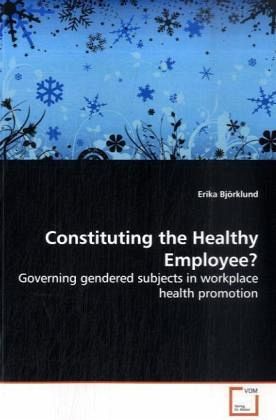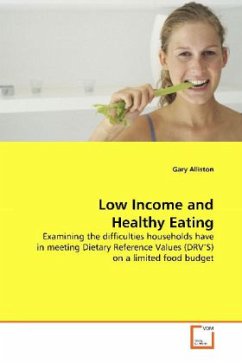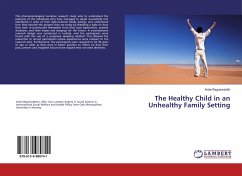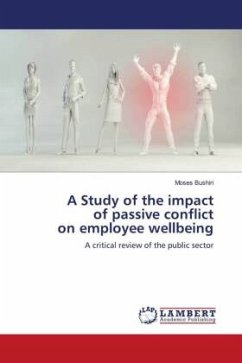
Constituting the Healthy Employee?
Governing gendered subjects in workplace health promotion
Versandkostenfrei!
Versandfertig in 6-10 Tagen
52,99 €
inkl. MwSt.

PAYBACK Punkte
26 °P sammeln!
Concern for worklife health is increasing as exemplified by the proliferation of workplace health promotion interventions on offer. Hence, parallel with research for the purpose of developing best practice in health education and workplace health promotion, it is also useful, and perhaps prudent, to try to gain insight into how notions about health govern the targeted subjects and what the effects areon their sense of self. Drawing on Foucault s notion of governmentality, this book examines the subjectification of employees to imperatives of health in workplace health promotion initiatives. Af...
Concern for worklife health is increasing as
exemplified by the proliferation of workplace health
promotion interventions on offer. Hence, parallel
with research for the purpose of developing best
practice in health education and workplace health
promotion, it is also useful, and perhaps prudent,
to try to gain insight into how notions about health
govern the targeted subjects and what the effects are
on their sense of self. Drawing on Foucault s notion
of governmentality, this book examines the
subjectification of employees to imperatives of
health in workplace health promotion initiatives.
After identifying two health discourses that were
drawn on in these initiatives, the book investigates
the limitations and imperatives that these
discourses imposed on the participants. It also
investigates how these limitations and imperatives
were taken up and (re)contextualized, and what the
consequences were for how participants were
invited to govern and make sense of themselves as
healthy (gendered) individuals. This book should be
of use and interest to students, professionals and
researchers in the field of public health and health
education.
exemplified by the proliferation of workplace health
promotion interventions on offer. Hence, parallel
with research for the purpose of developing best
practice in health education and workplace health
promotion, it is also useful, and perhaps prudent,
to try to gain insight into how notions about health
govern the targeted subjects and what the effects are
on their sense of self. Drawing on Foucault s notion
of governmentality, this book examines the
subjectification of employees to imperatives of
health in workplace health promotion initiatives.
After identifying two health discourses that were
drawn on in these initiatives, the book investigates
the limitations and imperatives that these
discourses imposed on the participants. It also
investigates how these limitations and imperatives
were taken up and (re)contextualized, and what the
consequences were for how participants were
invited to govern and make sense of themselves as
healthy (gendered) individuals. This book should be
of use and interest to students, professionals and
researchers in the field of public health and health
education.












